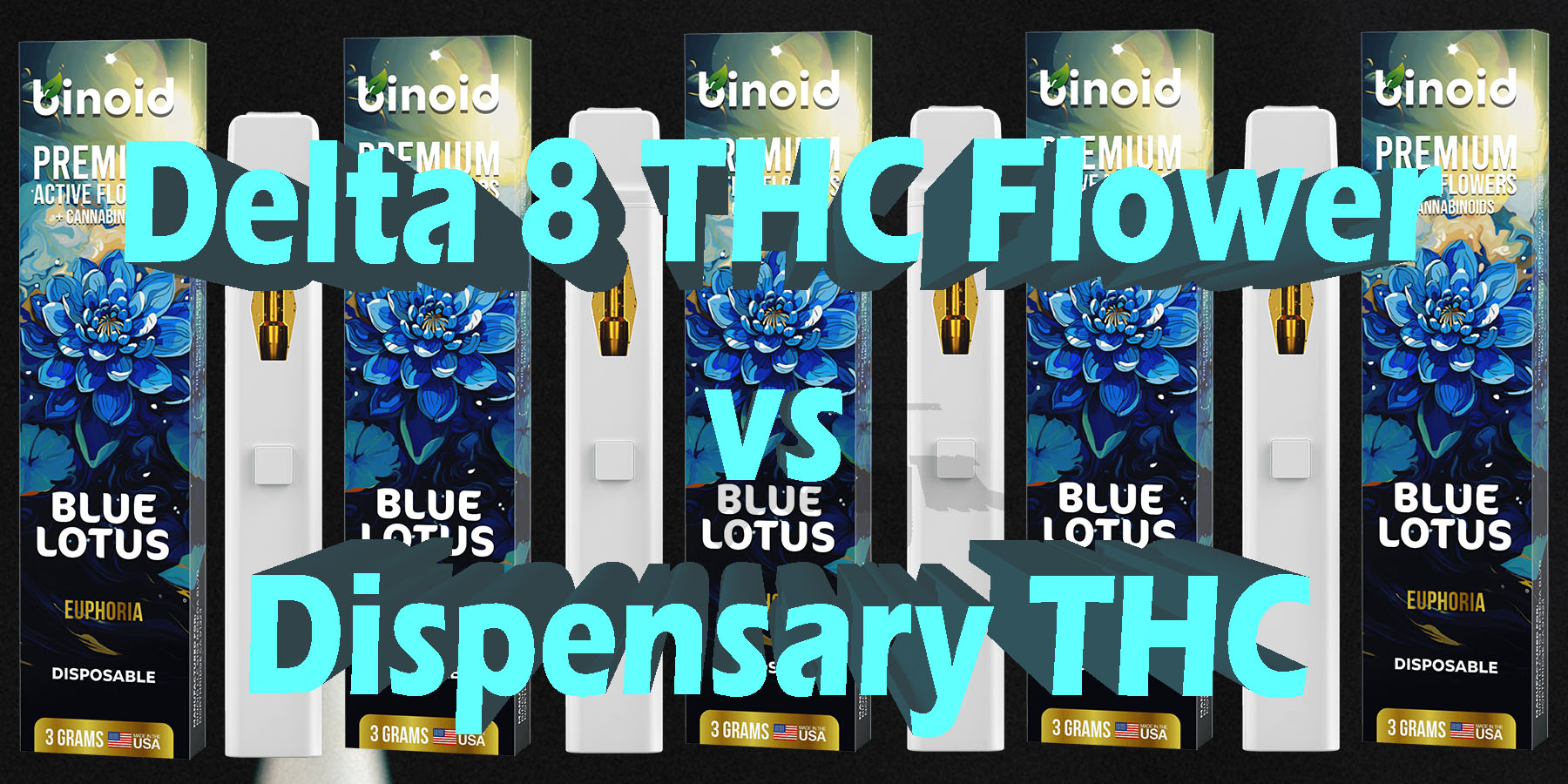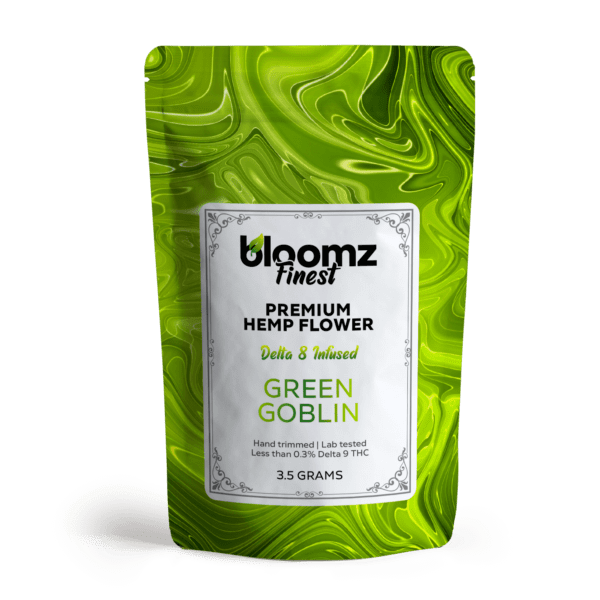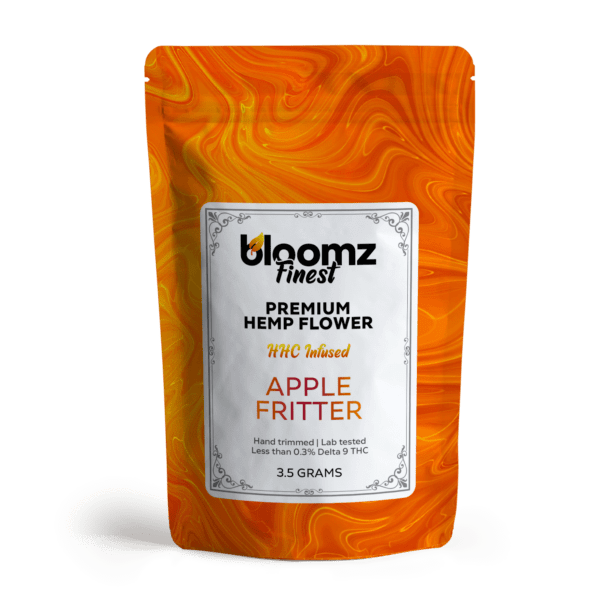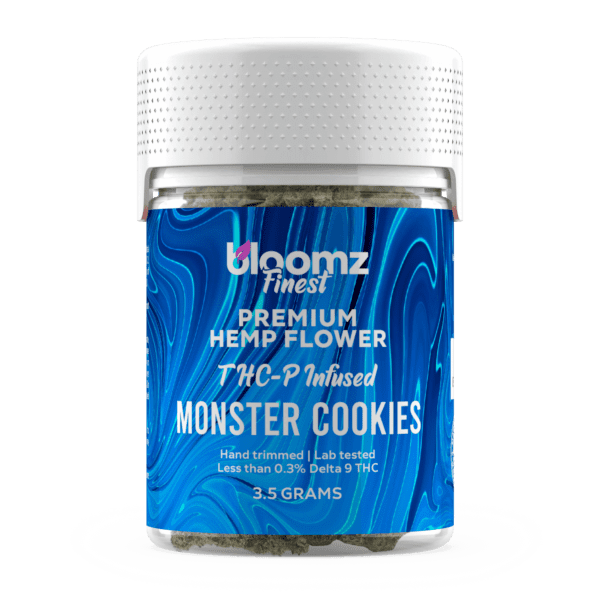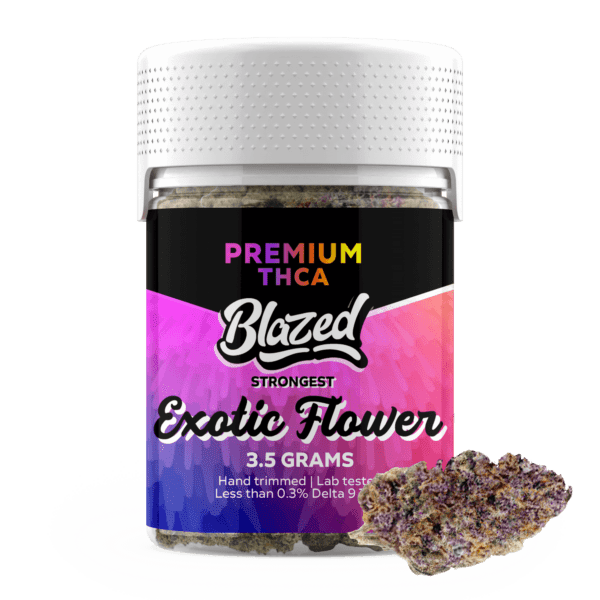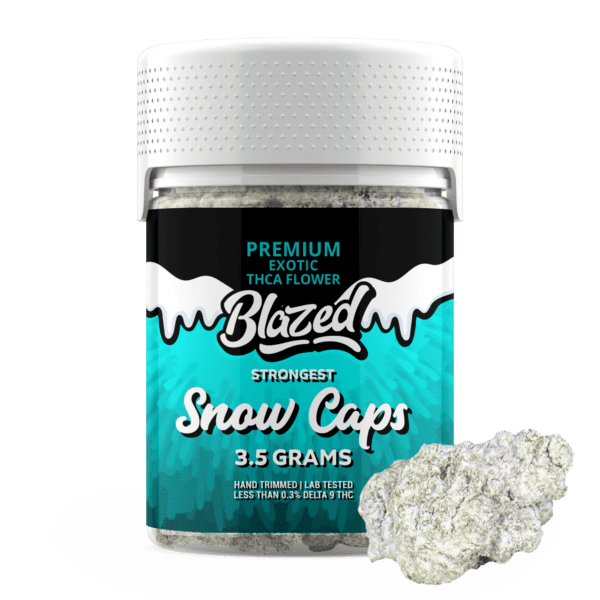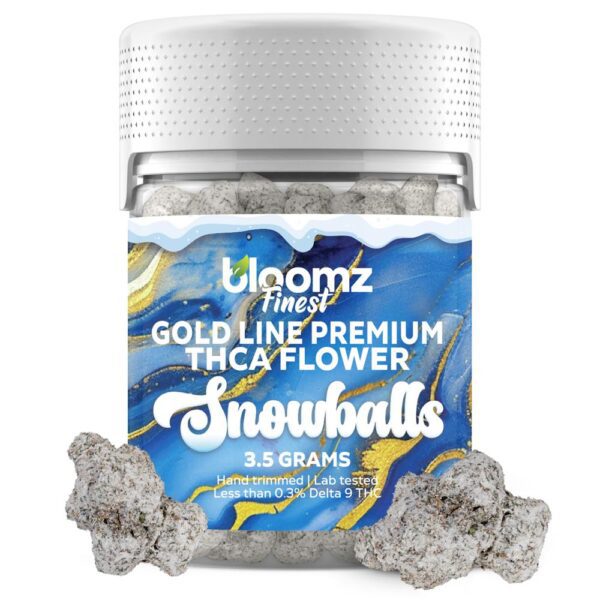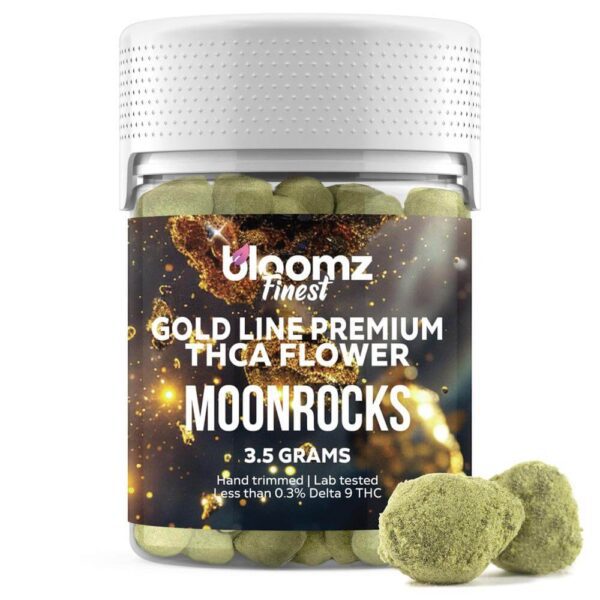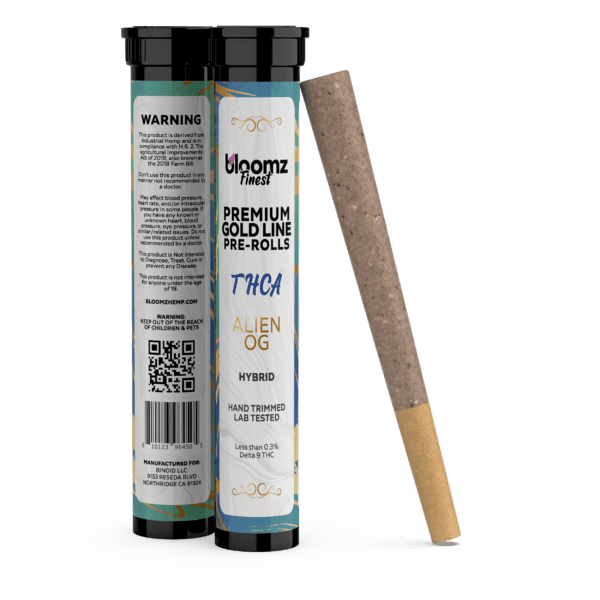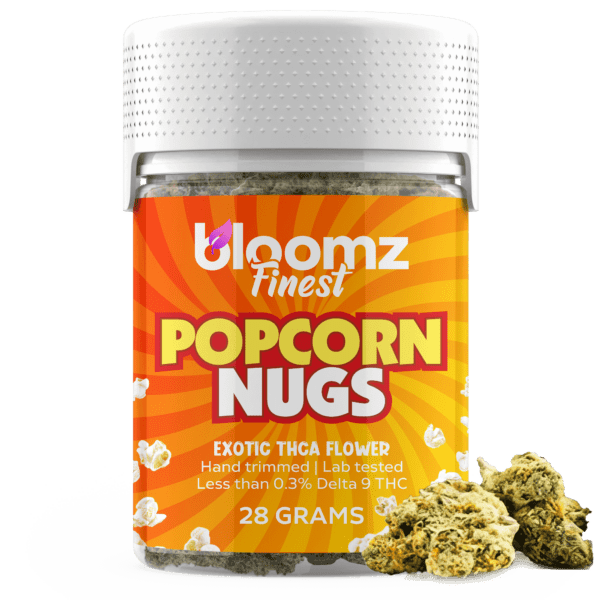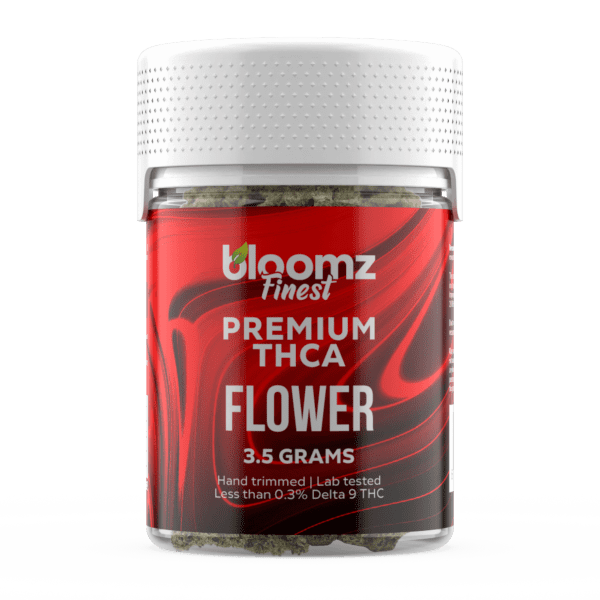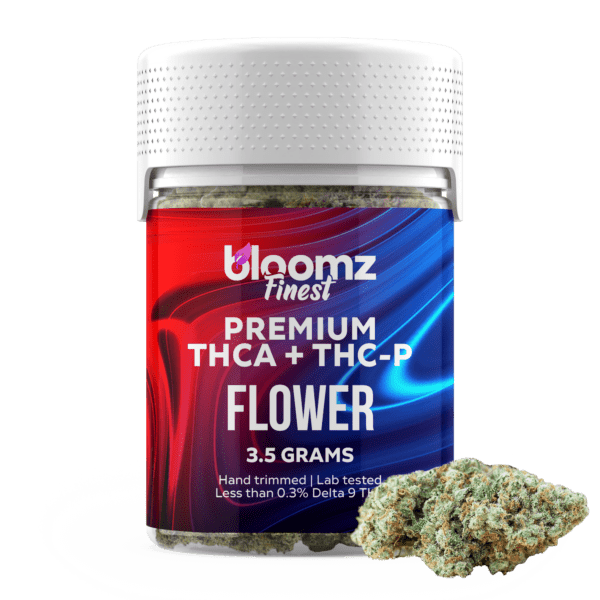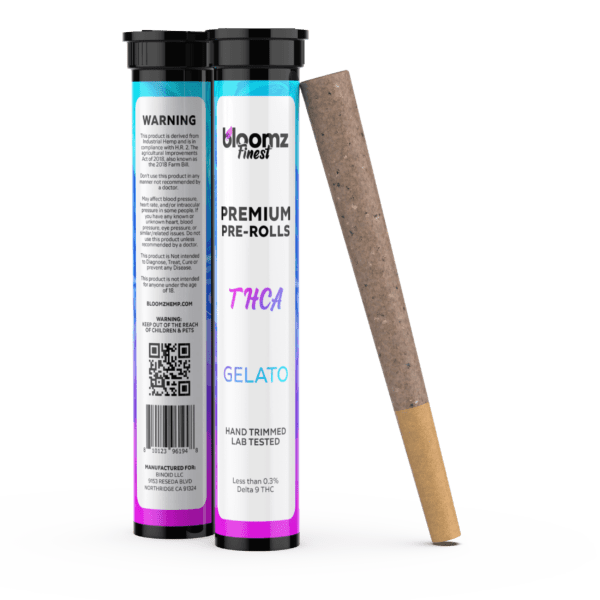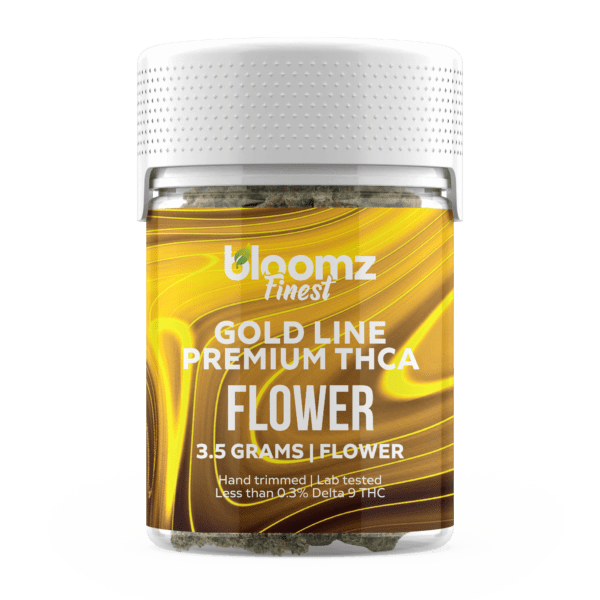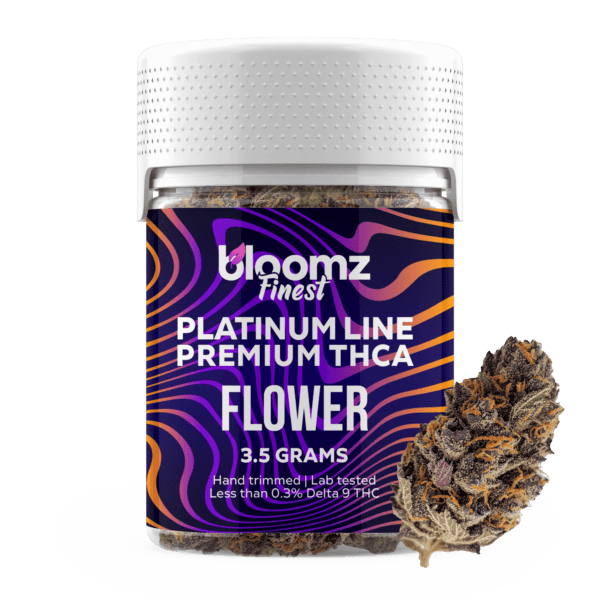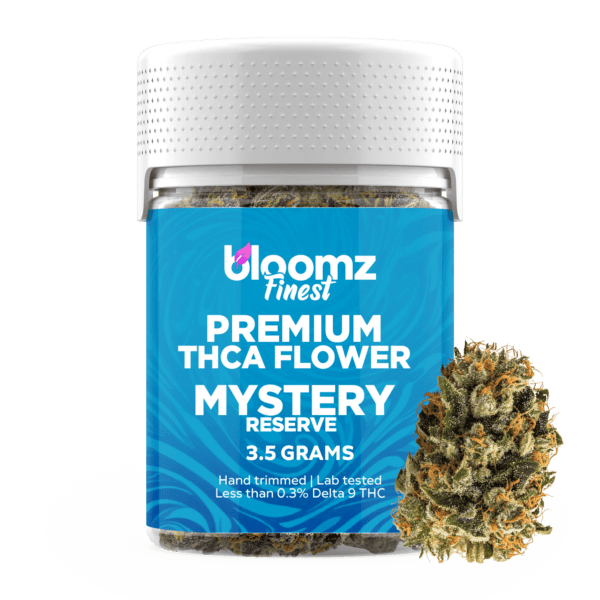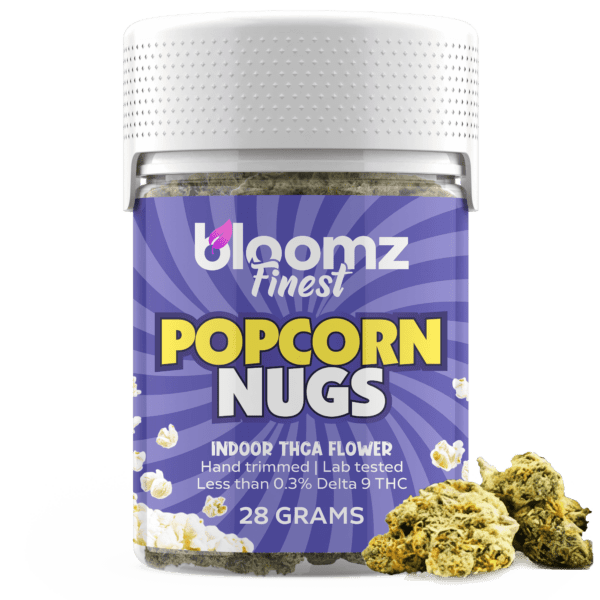In the grand, ever-unfolding narrative of botanical science, a new and compelling chapter has been written, introducing a character that has both fascinated and perplexed the modern consumer. This protagonist is Delta 8 THC, a cannabinoid that occupies a unique space, offering a familiar-yet-different experience that has given rise to a whole new category of products, most notably Delta 8 THC Flower. Its arrival has, by necessity, invited a head-to-head comparison with the established and highly regulated world of dispensary THC, the gold standard for state-legal cannabis.
This is not merely a technical showdown between two molecules; it is a deeper exploration of two entirely different philosophies of production and systems of access. It is a tale of scientific ingenuity meeting agricultural tradition, a story of how federal loopholes and state-level legislation have created parallel universes for consumers to navigate.
TO BUY DELTA 8 THC FLOWER CLICK HERE
Recommended products
Why It’s Important to Breakdown the Matchup of Delta 8 THC Flower vs. Dispensary THC
To navigate the contemporary cannabinoid marketplace with genuine understanding and confidence, it is absolutely imperative to dissect the matchup between Delta 8 THC Flower and the products classified as dispensary THC. These two categories represent distinct and parallel avenues to a psychoactive experience, but they are born from entirely different origins, governed by separate and often conflicting legal frameworks, and regulated with vastly different levels of scrutiny.
A failure to grasp these fundamental distinctions can lead to consumer confusion, mismatched expectations, and potential safety concerns. A clear and comprehensive breakdown demystifies the science, clarifies the legalities, and empowers the individual to make conscious, informed choices about what they consume:
Understanding the Divergent Paths of Creation: A critical reason for this analysis is to illuminate the profound difference in how these products are made. Dispensary THC products, particularly flower, are the direct result of agricultural cultivation, where the cannabis plant naturally produces Delta 9 THC. Conversely, Delta 8 THC flower is a manufactured product. It starts as a non-intoxicating hemp flower, which is then coated or infused with a Delta 8 THC concentrate that has been chemically synthesized in a lab from hemp-derived CBD. Recognizing this core difference—a natural agricultural good versus a post-harvest, scientifically crafted product—is essential for evaluating factors like purity, consistency, and the very nature of the product itself.
Clarifying the Vastly Different Regulatory Environments: This comparison shines a bright light on the two separate regulatory worlds these products inhabit. State-licensed dispensaries operate under meticulous “seed-to-sale” tracking systems with government-mandated, full-panel testing for potency and a wide array of contaminants. This provides a high level of consumer protection. The Delta 8 market, operating under the broader umbrella of the federal Farm Bill, is far less regulated. While reputable brands voluntarily conduct thorough testing, the lack of universal standards means the burden of verification falls heavily on the consumer. Understanding this regulatory gap is key to making safe purchasing decisions.
Setting Accurate Expectations for the User Experience: While both products are intoxicating, the character of the experience they offer is notably different. A detailed breakdown allows consumers to understand the science behind why Delta 8 THC is often described as providing a gentler, more functional, and less intense euphoria than the powerful and deeply psychoactive effects of dispensary-grade Delta 9 THC. This knowledge is crucial for aligning the product with one’s personal tolerance level and desired mental and physical state, preventing an experience that is either underwhelming or overwhelming.
Navigating the Labyrinth of Modern Cannabis Law: The legal status of these two categories is a complex and often contradictory puzzle. Dispensary THC is federally illegal but explicitly legal and regulated at the state level in a growing number of jurisdictions. Delta 8 THC exists in a volatile gray area; its legality is derived from a federal law (the Farm Bill), but it has been specifically banned or restricted by numerous individual states that are wary of its intoxicating nature and synthetic origins. A clear explanation of this legal dichotomy is vital for consumers to ensure they are making purchases that are compliant with the laws in their specific location.
Contender #1: Delta 8 THC Flower
Stepping into the spotlight as a direct result of scientific innovation meeting legislative opportunity, Delta 8 THC flower has emerged as a profoundly popular and widely discussed product in the national cannabinoid market. It presents with a familiar and appealing aesthetic, typically appearing as well-cured, aromatic hemp buds that delight the senses of sight and smell. However, the true defining characteristic of this product is not grown but made; its power lies in the sophisticated cannabinoid concentrate with which the base flower is artfully enhanced.
Delta 8 THC flower is not a botanical specimen that can be found in nature, but rather a thoughtfully constructed, multi-component product that showcases a synergy between high-quality hemp farming and advanced laboratory processing. It stands as a powerful testament to the ingenuity of the hemp industry, which has successfully learned to isolate, convert, and reapply minor cannabinoids in a classic, user-friendly format, creating an accessible alternative that offers a uniquely moderated experience.
To properly understand the flower, it is imperative to first understand the remarkable molecule that gives it its name and its effects. Delta 8 THC, or more formally, Delta-8-tetrahydrocannabinol, is a naturally occurring cannabinoid found in cannabis and hemp plants. It is a very close chemical cousin to the far more famous and abundant Delta 9 THC; in scientific terms, it is an isomer. This means that both molecules are built from the exact same number and type of atoms, but those atoms are arranged in a slightly different three-dimensional structure. The key molecular difference is the specific location of a double bond in their carbon chain—for Delta 8, this bond is found on the eighth carbon atom, while for Delta 9, it is on the ninth.
This subtle shift in geometry significantly alters the molecule’s stability and, more importantly, its binding affinity with the CB1 receptors in the brain. This less efficient binding is the direct cause of its characteristically different psychoactive effects. While Delta 8 is a natural constituent of the cannabis plant, it is only produced in such tiny, trace amounts that extracting it directly from plant matter would be economically impossible. For this reason, virtually all Delta 8 THC found in consumer products is created in a lab through a chemical process of isomerization, where abundant, federally legal, hemp-derived CBD is skillfully converted into Delta 8 THC.
With this crucial scientific context, it becomes evident that “Delta 8 THC flower” is not a type of plant that a farmer can cultivate to be naturally rich in Delta 8, as instead, it must be understood as a composite, manufactured, and infused product. The process begins with legally compliant, high-quality hemp flower, typically a strain that has been cultivated to be rich in CBD (cannabidiol) and, by federal law, contains less than 0.3% Delta 9 THC. This beautiful, terpene-rich flower serves as the foundational scaffold of the final product, providing the physical structure for consumption, the aromatic terpenes that govern its flavor and smell, and a background matrix of other non-intoxicating cannabinoids.
This otherwise inert hemp flower is then used as a vessel, which is meticulously infused or coated with a pure, concentrated Delta 8 THC distillate—the potent, amber-colored oil that was scientifically created in a laboratory from pure CBD. It is this critical infusion step that transforms the simple hemp flower into a potent and psychoactive product, capable of delivering the unique and sought-after effects of Delta 8 THC in a traditional, smokeable format. The final quality of the product is therefore a direct reflection of two independent variables: the premium quality of the initial agricultural product (the hemp flower) and the purity and potency of the scientific one (the Delta 8 distillate).
Recommended products
The creation of a high-quality, safe, and effective Delta 8 THC flower product is a sophisticated, multi-stage process that requires a seamless integration of expert agricultural practices and precise, high-stakes laboratory chemistry. Every link in this production chain is critically important to ensuring the final product that reaches the consumer is potent, clean, consistent, and enjoyable:
Sourcing and Cultivating Premium Hemp Flower: The entire endeavor is built upon the foundational quality of the base flower. The most conscientious and reputable producers start with premium-grade CBD or CBG hemp flower, which is often cultivated indoors or in light-assisted greenhouses using organic and sustainable farming methods. This flower is selected not just for its legal compliance, but for its superior physical characteristics: a dense, aesthetically pleasing bud structure, vibrant colors, a high concentration of natural terpenes for a rich aroma and flavor, and a smooth, clean-burning quality that ensures a pleasant user experience.
Laboratory Synthesis of Pure Delta 8 THC Distillate: In a completely separate, highly controlled laboratory environment, the Delta 8 THC itself is synthesized. The process begins with a highly purified CBD isolate or distillate that has been extracted from legally grown hemp biomass. This pure CBD then serves as the starting material for a chemical reaction known as isomerization. In this process, the CBD is dissolved in a solvent and combined with an acid catalyst, which is then heated and agitated under precise conditions for a set period. This reaction effectively rearranges the CBD molecules into Delta 8 THC. The resulting crude oil must then undergo a rigorous, multi-stage process of neutralization, washing, and purification through fractional distillation to create a pure, potent, and transparent Delta 8 THC distillate that is completely free of any residual solvents, acids, or unwanted chemical byproducts.
The Meticulous Infusion Process: This is the crucial manufacturing step where the agricultural product and the laboratory product are carefully combined. There are several proprietary methods for achieving a consistent infusion. A common technique involves gently warming the thick distillate to reduce its viscosity and then spraying it in a very fine, even mist over the hemp buds, often as they are being tumbled in a specialized coating machine. A more advanced and arguably superior method involves placing the flower in a vacuum-sealed chamber, removing all the air to open up the plant’s porous structures, and then introducing the warmed distillate, which is then drawn deeply and evenly into every part of the plant material. These solventless methods are preferred for their cleanliness and ability to create a homogenous product.
Essential Post-Infusion Curing and Quality Control: After the flower has been infused with the Delta 8 distillate, it is no longer a dry bud but a slightly moist and often sticky product that requires a final curing and drying stage. This allows the distillate to be fully absorbed into the plant matter and for any excess moisture to properly evaporate. This step is essential for ensuring a smooth, even burn and for preventing any potential for microbial growth in the packaged product. Quality control teams will then visually inspect the product for consistency and take samples for in-house testing to confirm that the potency is on target.
Final, Full-Panel Third-Party Laboratory Verification: As the final and most critical step for ensuring consumer safety and transparency, representative samples from every single finished batch of Delta 8 flower are sent to an independent, accredited, third-party laboratory. This lab performs a full-panel analysis, which is then published in a Certificate of Analysis (COA). The COA provides a detailed breakdown of the cannabinoid potencies, verifying the high Delta 8 content and confirming the legal compliance of the Delta 9 THC level. Most importantly, it also screens for a comprehensive list of potential contaminants, including residual solvents, pesticides, heavy metals, and mycotoxins, giving the consumer a final, unbiased, and transparent seal of approval on the product’s quality and safety.
The rapidly expanding market for Delta 8 THC flower offers a diverse range of product types and formats, thoughtfully designed to meet the varied needs and preferences of the modern consumer. This selection, which largely mirrors the traditional cannabis market, provides options that can cater to different budgets, desires for convenience and portability, and various levels of desired potency.
While the core product is always a skillful combination of high-quality hemp flower and potent Delta 8 THC distillate, the specific form that it takes can significantly shape the overall user experience, influencing everything from the smoothness and flavor of the smoke to the intensity and character of the effects:
Indoor Delta 8 Flower: This category represents the absolute pinnacle of quality in the Delta 8 flower market, the true connoisseur’s choice. The process begins with exceptionally high-grade CBD or CBG hemp flower that has been cultivated entirely indoors within a meticulously controlled and optimized environment. This careful cultivation results in a base flower that is incredibly dense, visually flawless with a thick blanket of its own frosty trichomes, and exceptionally rich in a complex profile of natural terpenes. When this top-shelf quality hemp is then infused with pure, clean Delta 8 distillate, it creates a final product that is celebrated for its superior, nuanced flavor, its remarkably smooth smoke, and its potent, well-rounded, and highly consistent effects.
Outdoor Delta 8 Flower: To create a more accessible and economically friendly option for a wider range of consumers, producers often utilize high-quality, sun-grown CBD or CBG hemp flower as the foundational material. While outdoor-grown flower may have a slightly less manicured or “perfect” appearance and a more rustic, earthy terpene profile compared to its indoor counterpart, it can still be incredibly flavorful and effective when cultivated with care. When infused with the same pure Delta 8 THC distillate, it becomes a highly effective and enjoyable product that offers fantastic value for consumers who prioritize the final end effect over pristine aesthetic qualities.
Delta 8 Smalls: “Smalls” are the smaller, often popcorn-sized buds that come from a premium hemp harvest. It is crucial to understand that these are not lower-quality buds in terms of their chemical makeup; they simply grew on the lower branches of the plant where they received less direct light, and thus did not grow as large as the top colas. By infusing these smaller, but still potent and terpene-rich, hemp buds with Delta 8 distillate, producers can offer a product that delivers the full flavor and potency of the premium nugs but at a significantly more affordable price point, making it a very popular choice for daily users and those looking for the best bang for their buck.
Delta 8 Nugs: This term refers to the main, A-grade, larger buds from a premium hemp harvest that have been expertly infused with Delta 8 THC. These are the visually impressive flowers that are often showcased in product photography by brands due to their excellent structure and high “bag appeal.” For consumers who appreciate the aesthetic quality of their flower and enjoy the tactile ritual of handling and breaking down a beautiful, chunky, and well-formed bud, Delta 8 nugs represent the standard-bearer for a top-tier flower experience.
Delta 8 Moonrocks: These are a high-potency, artisan specialty product designed for those with a significant tolerance or for users seeking a particularly powerful and long-lasting experience. The creation of a Delta 8 Moonrock is a triple-layered infusion process. It begins with a solid, premium hemp flower bud, which is then generously coated in a thick, sticky layer of highly potent Delta 8 THC distillate. Before this sticky layer can dry, the entire gooey bud is thoroughly rolled in a powdery, blonde layer of pure CBD or CBG kief (which is the concentrated, sifted resin glands, or trichomes, from the hemp plant). This creates a super-concentrated, dense, and slow-burning product that is incredibly potent and flavorful.
Delta 8 Pre-Rolls, Blunts & Joints: Offering the ultimate in user convenience and ease of use, Delta 8 pre-rolls are ready-to-smoke products that have been professionally filled and rolled with high-quality ground Delta 8-infused flower. They completely eliminate the need for any consumer preparation, such as owning a grinder, buying rolling papers, or possessing the skill to roll a proper joint. Available in a wide variety of strains and sizes, and often packaged in single, portable, and odor-proof tubes, pre-rolls are the perfect, hassle-free, grab-and-go option for social settings, travel, or any time a simple, straightforward experience is desired.
When you encounter a specific “strain” name attached to a Delta 8 THC flower product, it is fundamentally important to understand that this name is referring to the genetic strain of the base hemp flower that was used in its creation, prior to the infusion of the Delta 8 distillate. The primary psychoactive and intoxicating effects will, of course, be driven by the infused Delta 8 THC concentrate. However, the more subtle, nuanced, and aromatic dimensions of the overall experience—the specific flavor profile that dances on the palate, the quality and character of the aroma, and the gentle modulations in mood and feeling—are all determined by the unique profile of terpenes that were naturally produced by the original CBD or CBG strain.
Recommended products
The best and most reputable producers will carefully select foundational hemp strains that are known to have robust, desirable, and potent terpene profiles in order to create a more sophisticated, flavorful, and enjoyable final product. They will then categorize these finished goods under their original strain names, often using the familiar families of Indica, Sativa, and Hybrid to provide consumers with a reliable guide to the aromatic qualities and the general character of the experience they can expect:
Indica: When a Delta 8 flower product is presented under an Indica strain name, such as the legendary Bubba Kush or the classic hemp strain Special Sauce, it signifies that the foundational hemp flower used was an Indica-dominant genetic variety. These particular hemp strains are typically rich in a profile of terpenes like myrcene, linalool, and beta-caryophyllene, which are well known for producing earthy, musky, floral, and sometimes spicy aromas, and are often anecdotally associated with calming and relaxing sensations. The intended experience is a powerful synergy between the calming and soothing terpene profile from the flower and the pronounced physical relaxation provided by the Delta 8 THC, resulting in a product that is perfectly suited for evening use, quiet reflection, and deep, tranquil relaxation.
Sativa: A Delta 8 flower product that is sold under a Sativa strain name, such as the incredibly popular hemp strains Lifter or Sour Space Candy, has been crafted using a Sativa-dominant hemp variety as its base. These specific hemp strains are often very high in terpenes like terpinolene, limonene, and pinene, which are famous for contributing to bright, zesty, sweet, citrusy, and sharp piney aromas. The uplifting, invigorating, and fruity terpene profile of the Sativa flower is strategically combined with the gentle and clear-headed cerebral euphoria of Delta 8 to create an experience that is intended to be more energizing, creativity-enhancing, and highly conducive to daytime activities, engaging social interactions, or focused artistic pursuits.
Hybrid: Hybrid Delta 8 flower products are created by utilizing a hybrid hemp strain as the foundational material, which by definition offers a balanced and often highly complex profile of terpenes derived from both its Indica and Sativa parentage. These strains, which include many popular hemp varieties like Hawaiian Haze or Elektra, are carefully chosen for their well-rounded, multi-layered, and universally appealing aromas that might skillfully combine notes of tropical fruit, sweet berries, earthy pine, and pungent diesel all in one. The primary goal of a Hybrid Delta 8 flower is to provide a highly versatile, middle-of-the-road experience that delivers the blissful effects of Delta 8 accompanied by a rich and satisfying terpene profile that is neither excessively sedating nor overly stimulating, making it an excellent and highly adaptable choice for almost any time of day or occasion.
The legal status of Delta 8 THC within the United States is one of the most complex, contentious, and rapidly changing topics in the entire cannabinoid and cannabis industries, representing a true legal and regulatory minefield for consumers and businesses alike. Its initial claim to legality is firmly rooted in the specific and carefully chosen language of the 2018 Agriculture Improvement Act, more commonly known as the Farm Bill. This landmark piece of federal legislation officially legalized industrial hemp on a national level, defining it as any part of the cannabis plant containing less than 0.3% Delta 9 THC.
Crucially, the bill also legalized all “derivatives, extracts, cannabinoids, [and] isomers” derived from legal hemp. Since Delta 8 THC is an isomer of other hemp cannabinoids (specifically, it is most often converted from hemp-derived CBD) and the final products are rigorously kept below the legal Delta 9 THC limit, the industry has operated under the legal interpretation that it is a federally protected hemp product. This interpretation opened the floodgates for a massive national gray market to emerge. However, this legal standing has faced immense and sustained challenges. Citing its intoxicating effects and the fact that it is created through what they have termed a “synthetic” conversion process, the Drug Enforcement Administration (DEA) has issued opinions and interim final rules that suggest synthetically derived tetrahydrocannabinols remain illegal Schedule I controlled substances, regardless of their origin.
Furthermore, and perhaps more importantly for the consumer, a large and growing number of individual states have taken decisive action, passing specific laws to either completely ban or severely regulate the sale and possession of Delta 8 THC products due to safety concerns and its psychoactive nature. As a result, the legality of Delta 8 is far from guaranteed and exists in a fragile and precarious state, subject to a complex and ever-shifting patchwork of state laws, court battles, and future federal agency guidance.
Delta 8 THC flower is used by consumers for many of the same general purposes as other intoxicating cannabis products, though it is very often specifically chosen by individuals who are seeking its unique and characteristically more moderate and manageable effects. The methods of consumption are identical to those that have been employed for centuries for traditional cannabis or for newer products like THCA flower, as they all rely on the simple principle of heating the plant material to release the active cannabinoids for inhalation or preparing it for oral ingestion.
The consumer’s choice of method typically depends on their personal preference for the speed of the onset of effects, the overall duration of the experience, and the specific character of the high they are looking for. As an infused product, smoking or vaping Delta 8 flower serves to effectively vaporize the potent Delta 8 distillate that coats the buds, along with the native cannabinoids and rich terpene profile of the base hemp flower, delivering the full, synergistic profile of the carefully crafted product to the user in a single, flavorful inhalation:
Vaping (using a portable or desktop vaporizer): Vaping is widely considered to be an exceptional method for consuming Delta 8 flower, primarily because it offers a cleaner, smoother, and significantly more flavorful experience than traditional smoking. A modern dry herb vaporizer is a sophisticated device specifically designed to heat the infused flower to a precise, user-controlled temperature. This temperature is hot enough to efficiently vaporize the Delta 8 THC and the delicate, aromatic terpenes without actually causing the plant material to ignite and combust. This process creates a flavorful, cannabinoid-rich vapor that is generally considered to be less harsh on the lungs than hot, acrid smoke, and it allows the user to better appreciate the nuanced terpene profile of the underlying hemp flower, which can often be lost in the heat of combustion. Furthermore, vaping is a highly efficient method, often extracting more of the active compounds from the flower compared to burning it.
Smoking: This remains the most straightforward, traditional, iconic, and culturally resonant method of consumption. By smoking the Delta 8-infused flower in a rolled joint, a classic pipe, or a water pipe (often called a bong), the user applies intense, direct heat from a flame. This rapid heating process instantly and effectively vaporizes the Delta 8 distillate for immediate inhalation deep into the lungs. The effects from smoking are typically felt within just a few minutes, which allows for very easy, intuitive, and real-time dose titration based on the user’s immediate feedback. While highly effective and cherished as a ritual by many, this method does involve the inhalation of hot smoke and the various byproducts of combustion, and it produces a strong, characteristic odor that is not particularly discreet.
Cooking/Baking: Delta 8 flower can certainly be used as the primary ingredient to create potent and long-lasting homemade edibles, but the preparation process has some important nuances compared to using a high-THCA flower. The Delta 8 THC that has been infused onto the flower is already in its psychoactive, decarboxylated form and does not technically need to be heated to produce an effect when eaten. However, the foundational hemp flower is likely rich in the acidic, non-active cannabinoid CBDA. Therefore, if the user also wants to gain the well-known benefits of activated CBD in their final edible product, they would still need to go through the decarboxylation process (gently baking the flower at a low temperature, typically around 220-245°F, for 30-45 minutes) to convert the CBDA into CBD. After this optional but recommended step, the fully activated flower can be infused into a fat like butter or coconut oil and then used in any number of culinary recipes to create powerful edibles that provide the combined, synergistic effects of both Delta 8 THC and CBD.
The overall effects produced by the consumption of Delta 8 THC flower are what truly set it apart from traditional cannabis and are the primary driver behind its meteoric rise in popularity. The entire experience is orchestrated by the Delta 8 THC molecule which, because of the unique and slightly more stable placement of its double bond, binds to the brain’s critical CB1 receptors with a lower affinity and efficiency than its more powerful and famous cousin, Delta 9 THC.
This weaker and less comprehensive binding action results in an experience that is definitively psychoactive and intoxicating, but is widely and consistently reported by a vast number of users to be significantly less potent and intense than the often-overwhelming high produced by traditional cannabis. A great many users describe the Delta 8 experience as being remarkably more clear-headed and functional, allowing for a state of blissful euphoria without the associated mental fog or cognitive slowdown. It can produce wonderful feelings of happiness, creative energy, and deep relaxation, but often without the pronounced cognitive race, feelings of unease, or paranoia that can sometimes accompany high doses of Delta 9 THC.
The experience is also frequently characterized by a pleasant, calming, and highly noticeable body sensation, making it feel more physically relaxing and less cerebrally jarring. For these reasons, it is often affectionately referred to as “diet weed” or “THC lite,” and is cherished by individuals who are new to the world of cannabis, are particularly sensitive to the powerful effects of Delta 9 THC, or simply desire a more mellow, manageable, and gently euphoric experience for their daily lives.
Pros & Cons
As with any innovative product that has carved out a new and distinct niche in the marketplace, Delta 8 THC flower comes with a very clear set of advantages and potential disadvantages. It is essential for any prospective consumer to carefully and honestly weigh these points, as they touch upon everything from the novel and unique character of its effects to the significant and valid concerns that surround its methods of manufacturing and its highly volatile and uncertain legal status in the United States.
Pros:
A Uniquely Milder Psychoactive Profile: The most frequently praised advantage of Delta 8 THC is its well-earned reputation for producing a milder, gentler, and more manageable psychoactive effect when compared to the often-intense and powerful high of traditional Delta 9 THC. This defining characteristic makes it an incredibly appealing and often more appropriate option for individuals who are new to the world of intoxicating cannabinoids, as well as for those who have a naturally low tolerance or have had uncomfortable or anxious experiences with traditional cannabis in the past.
Facilitates a More Clear-Headed and Functional High: In concert with its milder nature, the euphoric state induced by Delta 8 is very often described by its users as being more clear-headed and significantly less cognitively impairing. Many people find that they can remain more focused, present, articulate, and functional in their daily tasks while still enjoying a profoundly blissful, creative, and relaxed state of mind, making it a popular choice for pairing with creative endeavors or social situations where sharp lucidity is desired.
Broad Initial Accessibility Through Federal Law: Based on its legal interpretation as a derivative of federally legal hemp under the 2018 Farm Bill, Delta 8 THC flower became widely and easily accessible to adults across a large portion of the United States, most notably through online e-commerce platforms. This created a much-needed legal pathway for millions of Americans living in states without recreational cannabis laws to purchase and experience an intoxicating cannabinoid product, thereby dramatically expanding access.
Represents a More Economical and Affordable Option: Due to the efficient and highly scalable chemical process of converting abundant and relatively inexpensive CBD into Delta 8 THC, and the highly competitive nature of the national online hemp market, Delta 8 THC flower products are often significantly more affordable and cost-effective than the heavily taxed traditional cannabis products that are sold in state-licensed dispensaries. This clear value proposition is a major draw for budget-conscious consumers.
Provides a Synergistic Blend of Cannabinoids: Since Delta 8 flower is created by infusing cannabinoid-rich CBD or CBG hemp flower, the final product offers a wonderfully synergistic blend of effects for the user. The consumer gets to experience the unique psychoactive properties of Delta 8 THC right alongside the rich and flavorful terpene profile and the non-intoxicating, balancing properties of the CBD and other minor cannabinoids that are naturally present in the base flower, creating a well-rounded and holistic “entourage effect.”
The Unmatched Convenience of Online E-Commerce: The ability for consumers to purchase Delta 8 THC flower online and have it shipped discreetly and directly to their doorstep offers a level of convenience, privacy, and selection that the traditional, highly regulated dispensary model often cannot match. Customers can browse an enormous selection of products from a multitude of brands, compare prices, and read customer reviews, all from the comfort and total privacy of their own home.
A Reduced Potential for Feelings of Unease or Paranoia: A significant and growing body of anecdotal evidence from countless users suggests that Delta 8 THC is considerably less likely to induce feelings of paranoia, unease, or anxiety than its more powerful and unpredictable cousin, Delta 9 THC. For the many individuals who are particularly sensitive to these potential negative side effects from consuming traditional cannabis, Delta 8 can offer a much more consistently comfortable, predictable, and enjoyable positive experience.
A Genuinely Novel and Different Cannabinoid Experience: Delta 8 THC offers a truly novel and unique cannabinoid experience that is distinct from both non-intoxicating CBD and the high-potency effects of Delta 9 THC. For seasoned cannabis users who may be looking for something new and different to explore, it provides an interesting and refreshingly different profile of effects. This novelty has been a major driver of its widespread popularity and the constant innovation that surrounds it in the marketplace.
Often Praised for its Soothing Physical Sensations: Many consumers specifically and consistently report that the effects of Delta 8 THC are particularly noticeable and pleasant in the body. The experience is frequently described as providing a smooth, calming, and deeply relaxing physical sensation that can feel like a warm and comforting blanket for the muscles and joints. This can be a highly desirable effect for those looking to unwind and release physical tension after a long or strenuous day.
Has Broadened Public Understanding of Cannabinoid Science: The meteoric rise in the popularity of Delta 8 has had the unintended but incredibly positive consequence of greatly expanding public education and discourse on the complexities of cannabinoid science. It has forced a mainstream conversation about the fact that “THC” is not a single, monolithic molecule, introducing complex but fascinating concepts like isomers, molecular stability, and the diversity of minor cannabinoids to a broad and curious audience, thereby deepening the public’s appreciation for the incredible chemical complexity of the cannabis plant.
Cons:
A Highly Precarious and Unstable Legal Status: The single most significant and unavoidable drawback of Delta 8 THC is its extremely volatile, confusing, and precarious legal situation. Despite its initial argument for legality under the federal 2018 Farm Bill, a large and growing number of states have taken aggressive and decisive legislative and regulatory action to specifically ban or severely restrict the sale and possession of Delta 8 products, citing public safety and health concerns. This has created a chaotic and rapidly changing legal patchwork that makes it incredibly difficult for consumers to know with certainty if the product is legal to purchase, possess, or consume in their specific city and state.
A Lack of Consistent and Enforced Regulatory Oversight: The national market for Delta 8 products is not subject to the same strict, consistent, and government-mandated regulatory oversight as the state-licensed cannabis industry. This unfortunate and dangerous lack of a unified regulatory framework has led to widespread and valid concerns about product quality and safety, with independent testing of some commercially available products revealing grossly inaccurate potency labeling, the presence of unknown and potentially harmful cannabinoid byproducts, and dangerous contamination with residual solvents left over from the chemical conversion process.
Significant Safety Concerns About the Conversion Process: Since the vast majority of Delta 8 THC is created by chemically converting CBD using powerful acids and other chemical reagents, there are significant safety concerns about the manufacturing process itself, especially when it is performed by inexperienced, untrained, or unscrupulous operators working in inadequate facilities. The process requires a high level of chemical expertise and sophisticated laboratory equipment to ensure that the final product is properly neutralized and meticulously purged of all unwanted chemical byproducts and residual solvents, posing a significant and unnecessary risk to consumers if not performed to the absolute highest standards of purity.
It is an Infused, Manufactured Product, Not a Natural One: It is absolutely essential for consumers to remember that unlike traditional cannabis flower, Delta 8 flower is not a product of nature alone; it is a multi-step, manufactured item. This infusion process can sometimes lead to an inconsistent and subpar product. An uneven spray or coating of the sticky distillate can result in “hot spots” on the flower with a much higher concentration of Delta 8, leading to an unpredictable experience. Furthermore, the heavy coating of distillate can sometimes lead to a harsher, less pleasant, and more difficult-to-combust smoking or vaping experience when compared to a clean, natural, and unprocessed cannabis bud.
Contender #2: Dispensary THC
In the other corner stands the heavyweight champion of the regulated cannabis world: Dispensary THC. This term doesn’t refer to a single compound but rather to the entire ecosystem of cannabis products that are legally cultivated, tested, and sold through a state-licensed dispensary system. These are the products that have driven the legalization movement for decades, representing the gold standard for safety, consistency, and variety within a government-sanctioned framework.
When a consumer walks into a dispensary, they are stepping into a highly controlled environment where every product on the shelf has been tracked from “seed-to-sale” and rigorously vetted for quality and purity. Dispensary THC is the embodiment of the legal, state-sanctioned cannabis experience, offering a deep and diverse product selection backed by the full force of state regulatory bodies and the expertise of a trained professional staff.
So, what exactly is a dispensary? A dispensary is a state-licensed and regulated retail storefront specifically authorized to sell cannabis products to qualified individuals. It is the legal, brick-and-mortar face of the modern cannabis industry, operating much like a pharmacy or a high-end liquor store. These establishments are subject to strict regulations governing every aspect of their operation, from security protocols and inventory management to marketing and sales practices. The primary role of a dispensary is to provide safe and legal access to cannabis in a professional and controlled environment.
They serve as a crucial interface between the producers and the public, employing trained staff known as “budtenders” who are tasked with educating consumers, answering questions, and providing personalized recommendations. By centralizing sales and enforcing strict age and identity verification, dispensaries ensure that cannabis is distributed responsibly and kept out of the hands of minors, forming the cornerstone of a state’s regulated cannabis program.
Building on that definition, “Dispensary THC” is a broad term for the vast array of cannabis products available for purchase at these licensed dispensaries. The defining characteristic of these products is that their Delta 9 THC concentration exceeds the 0.3% threshold that separates hemp from marijuana, thus placing them under the jurisdiction of state cannabis laws rather than federal hemp laws. The term encompasses a massive diversity of items, from the classic dried flower to a sophisticated selection of concentrates, edibles, tinctures, and topicals.
Every single one of these products has undergone a mandatory, state-monitored testing process at a licensed third-party laboratory. This testing verifies the product’s cannabinoid potency and confirms that it is free from a comprehensive list of potential contaminants. Therefore, “Dispensary THC” is synonymous with a guarantee of quality, safety, and regulatory compliance that is enforced by state law.
Dispensaries can generally be categorized into two main types, based on the consumer base they are licensed to serve: medicinal and recreational. Medicinal, or medical, dispensaries are establishments that are only permitted to sell cannabis products to patients who have received a recommendation from a qualified physician and have registered with the state’s medical marijuana program. These patients are issued a medical card which they must present to gain entry and make purchases. Medical programs often have different rules, such as allowing access for patients under 21, offering higher potency limits on products, and providing tax exemptions.
Recreational, or adult-use, dispensaries are open to any adult who meets the state’s minimum age requirement, typically 21 years or older, and can present a valid government-issued photo ID. These dispensaries cater to a broader consumer base and operate more like a traditional retail store. In many states that have legalized both, some dispensaries are licensed to serve both medical patients and recreational consumers from the same location, often with separate checkout lines or priority service for patients.
The product selection available within the dispensary THC ecosystem is incredibly vast and innovative, representing the culmination of decades of product development in mature markets. This diversity ensures that there is a cannabis product perfectly suited to nearly any preference, lifestyle, or desired experience, moving far beyond the traditional act of smoking flower. This breadth of choice has been instrumental in normalizing cannabis consumption and making it more accessible to a mainstream adult audience:
Flower: The foundational product of any dispensary, flower remains the most iconic and popular category. Dispensaries offer a huge menu of loose buds from various strains, allowing consumers to purchase by weight. They also provide a wide array of convenient pre-rolls and joints for those who prefer a ready-to-use option. Flower allows for the full-spectrum experience of a particular strain’s unique cannabinoid and terpene profile.
Edibles: Edibles are food and beverage products infused with cannabis extract. This category has exploded in popularity for its ease of use, discretion, and the potent, long-lasting effects it provides. State regulations mandate precise dosing and clear labeling on edibles, allowing consumers to have a predictable and controlled experience. Gummies are the most popular format, but the selection includes everything from gourmet chocolates and baked goods to savory snacks and infused drinks.
Pre-Filled Vape Cartridges: Vape cartridges, or “carts,” are small, disposable tanks filled with concentrated cannabis oil that attach to a battery. They offer a convenient, portable, and discreet way to consume cannabis, producing a vapor instead of smoke. This method provides a potent, fast-acting experience and allows users to enjoy the flavor profile of different strains without the harshness or strong odor associated with combustion. Dispensaries offer a massive selection of carts featuring various strains and cannabinoid formulations.
Concentrates: This category includes a wide range of highly potent products created by extracting the cannabinoids and terpenes from the plant material. With THC levels often exceeding 70-90%, concentrates like wax, shatter, live resin, and rosin are intended for experienced users. They are typically consumed through a method called “dabbing,” which involves flash-vaporizing a small amount on a heated surface. Concentrates offer the most powerful and immediate effects available.
Tinctures: A classic and versatile form of cannabis, tinctures are liquid extracts, typically infused into an alcohol or oil base, and are sold in small bottles with a dropper for precise dosing. Tinctures are usually administered sublingually (under the tongue), where they are absorbed directly into the bloodstream for a relatively rapid onset of effects without the need for inhalation. They can also be easily mixed into food or beverages, offering a discreet and controllable consumption method.
Topicals: Topicals are cannabis-infused lotions, balms, salves, and oils that are designed to be applied directly to the skin. Unlike other cannabis products, topicals are non-intoxicating, as the cannabinoids interact with local receptors in the skin and do not typically enter the bloodstream. They are used to deliver a localized effect to a specific area of the body. This category has become popular among a wide range of consumers looking to utilize the properties of cannabinoids without any psychoactive experience.
Just as with the broader cannabis plant, the flower and derivative products sold in dispensaries are categorized by their strain lineage: Indica, Sativa, and Hybrid. This classification system is the primary language used in dispensaries to help consumers navigate the vast selection and find a product that is likely to produce the effects they are seeking. Budtenders rely on this framework to guide customers, explaining the general tendencies of each category and the specific nuances of the individual strains within them. This system, while a simplification of complex plant chemistry, has proven to be an invaluable and effective tool for organizing the market and empowering consumer choice:
Indica: In a dispensary context, strains labeled as Indica are recommended for consumers seeking relaxation and calming effects. These are the strains associated with a “body high,” often described as providing a soothing, tranquil, and sometimes sedating experience. Dispensaries will typically market their Indica selection for evening use, perfect for a quiet night in, watching a movie, or preparing for a restful sleep.
Sativa: Sativa strains are presented as the energizing and uplifting options on the dispensary menu. They are recommended for consumers looking for a more cerebral and stimulating experience, one that may spark creativity, focus, and sociability. Budtenders will often suggest Sativa strains for daytime use, social events, or for pairing with creative projects and outdoor activities.
Hybrid: Hybrids represent the largest and most diverse category in any dispensary. They are marketed for their balanced and nuanced effects, combining characteristics from both Indica and Sativa parents. Dispensaries often further categorize hybrids as “Indica-dominant,” “Sativa-dominant,” or “balanced,” allowing them to provide even more specific recommendations. This category offers the most versatility, with strains tailored to a wide array of specific moods and occasions.
The legality of dispensary THC is defined by a deep and ongoing chasm between federal and state law. At the federal level, the U.S. government continues to classify cannabis (marijuana) as a Schedule I controlled substance, making it illegal to manufacture, distribute, or possess. However, since California first legalized medical cannabis in 1996, a growing wave of states has enacted its own legislation to establish legal and regulated cannabis programs, in direct defiance of this federal prohibition. This has created a system where cannabis businesses and consumers are in full compliance with state law while simultaneously violating federal law.
This legal conflict creates numerous operational challenges for the industry and a complex legal reality for consumers, where the legality of their actions is entirely dependent on their geographic location within the country. As of today, a significant number of states have legalized cannabis for adult recreational use, an even larger number permit it for medical use, and only a small minority maintain a complete prohibition.
The overall effects of consuming dispensary THC are driven by the interaction of Delta 9 THC and other cannabinoids with the body’s endocannabinoid system. When consumed, THC binds to cannabinoid receptors in the brain, which modulates neurological activity and produces the classic “high.” This experience is multifaceted and can vary greatly, but it is typically characterized by a sense of euphoria, an elevated mood, and feelings of general well-being and contentment. It can also lead to altered sensory perception, making experiences feel more vivid and engaging.
Many users find the experience to be deeply relaxing, both mentally and physically, providing a “chilled out” sensation that helps to unwind. The specific character of the high is heavily influenced by the strain’s unique profile of cannabinoids and terpenes, with some providing a more energizing and cerebral experience, while others deliver a more calming and body-focused sensation.
Pros & Cons
The world of dispensary THC, born from a complex interplay of grassroots activism, legislative action, and market demand, offers a very distinct and well-documented set of pros and cons. These are largely shaped by the robust and comprehensive regulatory environment in which it exists and the paradoxical legal tension between state legality and ongoing federal prohibition. The primary advantages of dispensary THC center on the pillars of safety, unparalleled choice, and professional, expert guidance, while its disadvantages often relate to issues of cost, geographic accessibility, and the lingering legal and social complexities it faces.
Pros:
Unwavering Commitment to Safety Through Rigorous Regulation: Products that are sold in state-licensed dispensaries are subject to the most stringent and comprehensive government-enforced regulations in the industry. This includes mandatory, full-panel third-party lab testing for not only accurate potency but also for a complete list of potential contaminants such as pesticides, heavy metals, mold, bacteria, and residual solvents. This provides consumers with the absolute highest level of safety assurance available on the market today.
An Unmatched Diversity of Products and Innovation: State-legal dispensaries offer an unparalleled and constantly expanding diversity of product types that cater to every imaginable consumer. Beyond the traditional flower, customers can choose from a massive selection of precisely dosed edibles, convenient and discreet vape cartridges, powerful and pure concentrates, fast-acting sublingual tinctures, and a wide variety of non-intoxicating topicals. This incredible variety ensures that there is a product to perfectly fit any lifestyle, preference, or desired experience.
Access to Professional, In-Person Guidance and Education: A key and invaluable benefit of the dispensary model is the direct access it provides to a trained and knowledgeable staff of professionals, often called “budtenders.” These individuals can provide personalized, one-on-one consultations, answer complex and nuanced questions, and help guide consumers—especially novices—toward the products, strains, and dosages that are most likely to meet their needs and result in a safe and positive experience.
Guaranteed Potency, Consistency, and Predictable Dosing: Due to the strict enforcement of mandatory lab testing and highly detailed labeling requirements, dispensary products offer a superior degree of consistency and predictability. Consumers can be completely confident that the cannabinoid percentages listed on the package are accurate and verified, allowing them to reliably control their dosage, manage their experience, and achieve the same results from one purchase to the next.
A Clear, Stable, and Defined Legal Framework (at the State Level): For consumers who reside within a state that has a legal cannabis market, the rules of engagement are generally straightforward and transparent. The state law clearly and explicitly outlines who is legally allowed to purchase, how much they can legally possess, and where they are legally permitted to consume. This high level of legal clarity provides significant peace of mind and removes the guesswork and ambiguity that can be associated with products that exist in a more nebulous or gray legal space.
A Powerful Engine for Economic Growth and Public Funding: The legal cannabis industry has proven to be a major and reliable economic driver for the states that have chosen to implement it. It creates tens of thousands of well-paying local jobs across a wide range of sectors, including agriculture, manufacturing, transportation, retail, and compliance. Furthermore, the substantial tax revenue generated from cannabis sales is used to directly fund essential public services, such as public schools, infrastructure projects, mental health programs, and social equity initiatives.
A Safe, Professional, and Welcoming Retail Environment: Modern, state-licensed dispensaries have been intentionally designed to be safe, clean, professional, and welcoming retail spaces. They often resemble high-end boutiques, modern pharmacies, or sophisticated art galleries, an intentional design choice that has been instrumental in destigmatizing the cannabis purchasing experience and making it more comfortable, normalized, and accessible for a much broader mainstream adult audience.
A Powerful Catalyst for Social and Criminal Justice Reform: The persistent and powerful movement to legalize cannabis at the state level has been a major force for positive social and criminal justice reform. It has brought much-needed attention to the disproportionate and devastating impact that decades of cannabis prohibition has had on minority and marginalized communities. As a result, many state legalization laws now include important and restorative provisions, such as programs to expunge past low-level cannabis offenses and social equity initiatives designed to provide opportunities in the legal industry for those individuals and communities that were most harmed by the “war on drugs.”
Cons:
Extremely Limited Geographic Accessibility: The most significant and frustrating drawback of dispensary THC is that it is only legally available in the specific states that have passed their own legalization measures. This creates vast “cannabis deserts” across the country and profound geographic disparities in access, where citizens in one state have a safe and thriving regulated market, while those in a neighboring state have no legal options whatsoever, forcing them to either travel long distances, abstain completely, or turn to the dangerous and unregulated illicit market.
The Overarching Shadow of Federal Illegality: Despite being legal and highly regulated at the state level, all dispensary THC products remain federally illegal as Schedule I controlled substances. This has numerous serious and negative ramifications, including potential issues for consumers with federal employment, federal housing assistance, or firearm ownership. It also makes it a serious federal crime to transport legally purchased products across state lines, even if you are traveling between two states that both have legal cannabis markets.
A Significantly Higher Consumer Cost Due to Heavy Taxation: While the generation of tax revenue is a major benefit for state governments, it often translates into significantly higher prices for consumers. Recreational cannabis is frequently subject to some of the highest tax rates of any consumer good, with combined state, county, and local taxes sometimes exceeding 30% or 40% of the final purchase price. This heavy tax burden can make products from a legal dispensary considerably more expensive than comparable products available in other markets.
The Inconvenience of the Brick-and-Mortar Retail Model: The dispensary model, by its very nature, requires a physical trip to a licensed retail location. These stores may have limited hours of operation and can be highly inconvenient for those with busy schedules, mobility issues, or for individuals who live in rural areas far from the nearest licensed storefront. While some dispensaries in mature markets offer delivery services, it is not as universally available or as seamless as the nationwide shipping offered by many online hemp vendors.
How to Go About Choosing Which Option
Navigating the choice between Delta 8 THC flower and dispensary THC is a modern consumer’s dilemma that is best solved through a clear-eyed evaluation of your personal circumstances, your individual tolerance for psychoactive substances, and your priorities as a consumer. This is not a simple question of which product is “better” in an objective sense, but rather a nuanced decision to determine which one is the most appropriate and suitable fit for you. These two categories represent fundamentally different systems of access to a similar, yet distinct, class of experiences.
One is born from the convenience and scientific innovation of the federally legal hemp market, while the other is rooted in the safety, variety, and agricultural tradition of a state-regulated, in-person retail system. By carefully considering the legal landscape where you live, the type of shopping experience you prefer, and the value you place on stringent regulatory oversight, you can navigate this choice with confidence, clarity, and a sense of empowerment.
The first and most critical step in this decision-making process is to gain a clear and accurate understanding of the specific cannabis and hemp laws in your state and local municipality. If you are fortunate enough to live in a state with a fully legal, adult-use recreational cannabis market, you have the distinct privilege of being able to choose between both worlds. In this scenario, your decision can be based on secondary, preferential factors like the specific effects you’re seeking, the cost of the products, the convenience of the purchasing method, and the overall product selection.
You might prefer the highly curated, in-person experience and the vast product diversity of a state-licensed dispensary, or you might find the potentially lower costs and the direct-to-your-door convenience of ordering Delta 8 THC flower online to be more appealing. However, if you reside in a state where traditional cannabis remains prohibited, your choice becomes much more limited and legally sensitive. In this case, you must then do the crucial due diligence to determine if Delta 8 THC is legal in your state, as many jurisdictions have moved to ban it, making it essential to confirm its status before making any purchase.
Next, you should take a moment to consider your personal preferences as a consumer and the type of shopping experience you find most comfortable and enjoyable. Are you an individual who values a curated, professional retail experience, the ability to ask detailed questions of an expert staff member, and the sensory satisfaction of being able to see and smell the products before you commit to a purchase? If so, the highly regulated and customer-service-oriented dispensary model is designed specifically for you.
Conversely, do you place a higher premium on privacy, convenience, and the ability to conduct your shopping from the comfort and discretion of your own home at any hour of the day or night? If you prefer to browse extensive online catalogs, diligently read customer reviews and third-party lab reports, and have your goods delivered discreetly to your door, then the e-commerce world of Delta 8 THC flower will be a perfect and seamless fit.
Finally, it is wise to evaluate where you stand on the spectrum of regulation and personal trust. Are you a consumer who gains a significant amount of peace of mind and confidence from knowing that every single product you buy has been required by law to pass a comprehensive battery of tests that are mandated and overseen by a government agency?
If this level of assurance is important to you, then the stringent, top-down, seed-to-sale framework of the legal dispensary system offers an unparalleled and unmatched level of security. Or, are you a more self-reliant and research-oriented consumer who is comfortable and confident in your own ability to vet different brands, read independent reviews, and meticulously scrutinize third-party lab reports to verify a product’s quality, purity, and safety for yourself? If so, you can confidently and safely navigate the many high-quality offerings in the transparent and highly competitive national Delta 8 THC market.
|
Feature |
Delta 8 THC Flower |
Dispensary THC |
|---|---|---|
|
Defining Characteristic |
Hemp flower infused with lab-made Delta 8 THC |
Cannabis flower naturally containing > 0.3% Delta 9 THC |
|
Primary Psychoactive Compound |
Delta 8 THC |
Delta 9 THC |
|
Typical User Experience |
Milder, clearer-headed, and more manageable euphoria |
Potent, intense, and profoundly psychoactive “high” |
|
Method of Creation |
A manufactured, multi-component product |
A natural, agricultural product |
|
Governing Legal Framework |
Federal Law (2018 Farm Bill) & State Bans |
State Law (Medical or Recreational Programs) |
|
Federal Legal Status |
Legally complex and precarious; often contested |
Federally illegal (Schedule I Drug) |
|
Primary Method of Purchase |
E-commerce (Online Sales & Direct Shipping) |
Brick-and-Mortar (Physical, Licensed Retail Stores) |
|
Regulatory System & Oversight |
Brand-driven transparency; reliant on voluntary third-party COAs |
Strict state-mandated seed-to-sale tracking and testing |
|
Primary Advantage |
Milder effects & broad accessibility (where legal) |
Highest level of safety regulation & product diversity |
|
Primary Disadvantage |
Uncertain legal status & less consistent regulation |
Limited geographic access & higher cost due to heavy taxes |
The Final Verdict: A Reflection of Personal Choice
As the final bell rings on this in-depth comparison, it becomes abundantly clear that the choice between Delta 8 THC flower and dispensary THC is not about crowning a single, undisputed champion. Instead, it is about empowering you, the discerning consumer, to make a decision that is a true reflection of your own needs, desires, and circumstances. The modern cannabis landscape is no longer a monolith; it is a vibrant and diverse ecosystem with multiple paths leading to similar, yet distinct, destinations.
Your decision is a personal verdict, one that is ultimately guided by the legal map of your home state and the internal compass of your own preferences. This emerging duality in the market is not a sign of conflict, but a triumph of choice, a new paradigm that provides more options and greater access than ever before in history. Whether your journey leads you to the brightly lit, secure counters of a local dispensary or the digital shopping cart of a trusted online vendor, you’re engaging with a timeless plant through a uniquely modern and personalized lens.
TO BUY DELTA 8 THC FLOWER CLICK HERE
Recommended products
-
THCA Flower – Indoor Exotics – Gold Line
$37.99$69.99 -
THCA Flower – Platinum Line
$49.99$79.99 -
THCA Flower – Mystery Reserve
$41.99$79.99 -
THCA Smalls
$149.99$256.99

